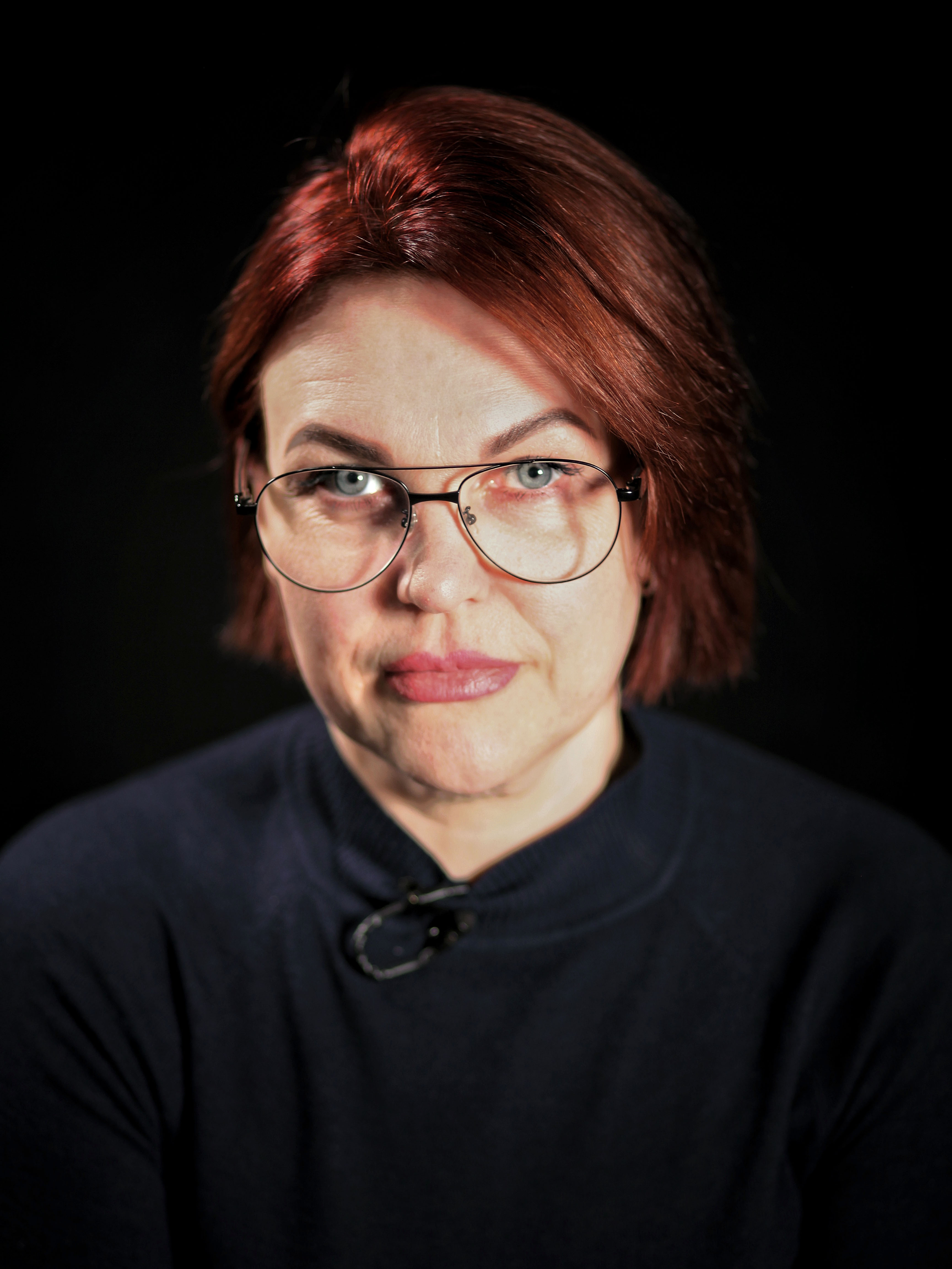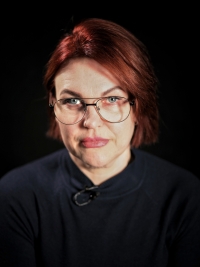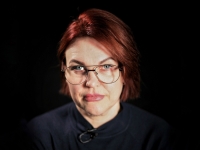I will tell this through the eyes of a simple person, not a public figure, but just a woman. We woke up at five o'clock when the planes were flying, we heard shelling and realized that it was the Kramatorsk airfield. We woke up and realized that there was a war already by watching the TV. We got dressed with our son, went to the store and saw the lines at ATMs. People were already standing in line at the shops. We withdrew money, we took what we could, it was like this, some kind of... I have bronchial asthma, I bought some medicines and came home. It was a Thursday. On Saturday I went to church, and there were people who did not want to enter a Moscow Patriarchate church. I held this service. On the way home, you know, I felt like crying psychologically. I came home and told my mother... I told her that I had a personal question, my mother was recovering from COVID, my son and I both had it, but I could only smell the aroma of coffee, I couldn't drink it, and my mother was seriously ill. I was crying, I said, "Mom, this is not what happened in [20]14, this is for a long time." And then the spring was cold, it was chilly. On March 1, people started to leave. There were queues in the shops, prices at the market went up, you could buy Artemivska salt for 70 hryvnias. Queues at pharmacies, you can't buy iodine, something you could take two days ago, you couldn't do it today. You see how the city just becomes empty, you go home, you have bread in the fridge so that you can [eat] for a week or two. You stock up on some flour, put something together, and watch TV. We have an antenna, and they didn't cut us off immediately [from Russian TV], so it was an information war. It was just an information nightmare, what Russia was saying would happen. You see the planes flying, we were already under fire. Then, in March, people started to leave, the market was empty, the streets were empty, in April you see ATB and Eva [store chains] leaving, and the city just became like you saw it in [20]14, when you came to get your things [from the evacuation], it was empty. You know... Those women who, for example, were sick together with my mother, and you realize that you need to help, you take that flour... I had three or four women whom I would bring [things to], they live on the fifth floor, yes, the fifth or fourth floor, I would just bring [things to] them. Because I knew it was hard for them to go downstairs. The shops are closed. The prices. And then things started to happen. You saw the humanitarian aid, there were no groups, they just tell you that they are distributing it over there. They distributed it, and then those people were gone. I stayed home until April, cleaned everything, looked around and went to work at the cash register. I was just going crazy, I didn't know what to do. That is, a person who used to do photography and wanted to open her own photography school, to carry out social projects, to engage in community activities, sits down at the cash register because you realize that you have a child, a mother, who will not leave, and if she does, she simply will not be able to endure physically. You are nothing without some kind of space, and I realized that. Plus, we had decided, we had animals. We decided to help people, not to leave. The overall picture was of an empty city. It was only later that the guys appeared, the military, that's another page, but at first you have this, you walk on foot, pharmacies are torn open, sirens, your room becomes like this... I took down the plasma [TV] and said, "We don't watch TV". That is, we get information about the city on the Internet. You close the windows because there is the curfew that starts. It started at five at first, and it was already dark, the lights were turned off, and then it went on. This is war already. This is such a period. The girls [from the Women’s Association Pani NGO], we were going to... Zoom did not work in Donetsk region and it does not work now, we were going to meet with the girls on Meet [Google Meet]. They thought that I was mentally unstable, that I should be evacuated, but I said that I needed to help people here, and I stayed.


